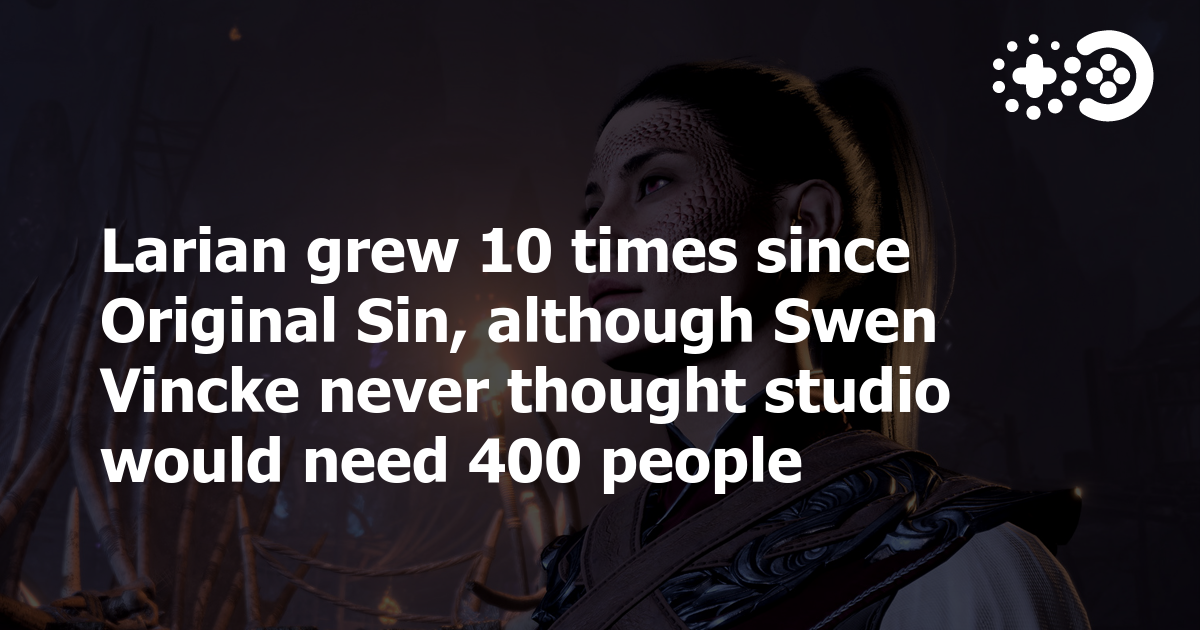I'd add inXile to this list. Solid track record of CRPGs with its Bard's Tale reboot, Torment: Tides of Numenera, and Wasteland 2 and 3 (especially Wasteland 3). Like Obsidian, owned by Microsoft now which has its advantages and disadvantages. Clockwork Revolution, while it's venturing out of the typical CRPG space, is looking like one of the most promising upcoming titles. Maybe a return to the traditional CRPG space after that with a BG4 would be something they'd be interested in?
Yeah so that's actually an interesting suggestion. inXile don't have the same high-profile record of CRPGs as Larian/Obsidian/Owlcat but they are on essentially the same Indie-AA-AAA arc, with Clockwork Revolution clearly being an AAA game (albeit a smaller one I'm guessing, from the trailers - I suspect it's more of a 15-20 hour experience than a some 60+ hour epic - nothing wrong with that, of course).
So yeah I think they might also be in consideration for anyone looking to get an RPG made. But sadly WotC still seem to think in-house is the way to go.
That actually isn’t true so maybe you should do some homework
Larian made money in 2022 but reported a loss.
Making a loss
during game development is totally normal, especially if your new product is more expensive to produce than your previous one.
The only way to avoid it is for your previous games to continue selling
so well that you don't despite all the money you're pouring into the upcoming product. The idea though is to have a "war chest" big enough that it doesn't matter. And Larian did.
This is normal game development, but you're seeming to either not understand or misrepresent the situation, not that they were "on the ropes". Also, 2022 is 4 years AFTER they pitched to WotC and won the pitch. So your have things happening completely out-of-order - the idea that they pitched because they were "on the ropes" is obviously untrue!
Did they pitch because they wanted to use BG3 to become an AAA? Probably. Sure, why not? They already were hiring AAA numbers of developers before they won the pitch, so they'd have to have done a different game if not, but given how successful DOS2 was, DOS3 would likely have done even better - just not as well as BG3 did. So they'd still have become an AAA, but probably a smaller one.
You are correct that wotc only got about 12% but that was 90 million with o money so that’s probably a big reason why Sven wanted out
Oh definitely agree, I'm sure it influenced things. I think WotC could have finessed it if they'd kept Mearls and his team, but the combination of firing the very people Swen liked working with and who gave Larian this opportunity and taking such a large revenue percentage (which they continued to get after Mearls etc. were fired) pushed Swen over the edge into making the same decision most game devs eventually make - that they're done with using IPs they don't own.
Bioware made the same decision with Mass Effect and Dragon Age, both were intentionally developed so they didn't need to licence IPs (and could do things with them that licence holders might be wary about - though in the end EA stepped in to prevent some stuff they wanted to do with ME1/2, primarily gay romances, before relenting with ME3 - EA didn't do the same with DA for reasons I forget - David Gaider explained it once I think).
It took 3 pitches for wotc to get fully on board.
Yes. No-one is disputing that. But you're making out it like he "begged" for another chance out of desperation, and that's just not true (even if Swen likes to make a drama out of everything). What happened is well-established.
1) Larian asks (doesn't really "pitch" in the truest sense but you're calling it one so fine) if they can do BG3. Gets told "No" outright like everyone else who asked.
2) WotC (Mearls) sees DOS2's pre-release trailer and so on, and WotC calls Larian and tells them to do a pitch, but gives them a very short timeline. Larian does the pitch and WotC likes it but doesn't say "Yes", but rather "You have to meet X requirements and provide a full design document by Y date".
3) Larian meets the requirements and provides the design doc by Y date, does a more in-depth pitch to WotC, gets the "Yes" they needed.
This is all in the Wikipedia article I linked, with sources.




